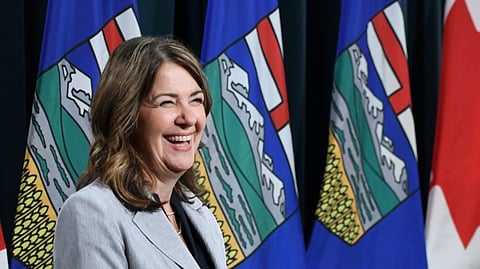

Alberta’s government, acting as proponent, has announced plans to submit a formal application for a nationally significant oil pipeline to British Columbia’s northwest coast, supported by South Bow, Enbridge, and Trans Mountain.
The project aims to enhance market access for Canada’s crude oil, with an application expected by spring 2026. Premier Danielle Smith emphasized the project’s broader impact.
“This project application is about more than a pipeline; it’s about unlocking Canada’s full economic potential. By doing this the right way from day 1 with Indigenous partners and industry expertise, we will deliver a proposal that proves this project is undeniably in the national interest.”
BC Premier David Eby opposes public funding for a new crude oil pipeline to the northern coast proposed by Smith, citing the Trans Mountain pipeline’s existing capacity and the federal tanker ban (Bill C-48). While not against a privately funded project, he said there is no viable proponent or funding.
Smith's initiative involves $14 million from Alberta for early planning, including cost estimates and Indigenous engagement. Minister of Energy and Minerals Brian Jean said, “With the right infrastructure, moving toward superpower status is both realistic and achievable.”
Indigenous co-ownership and perspectives are central, with Minister of Indigenous Relations Rajan Sawhney noting, “This is about partnerships and building trust from day 1 – ensuring Indigenous voices shape the decisions.”
Chief Raymond Powder of Fort McKay First Nation welcomed the approach, saying, “True partnership means listening to Indigenous voices, respecting our lands and ensuring our people share in the benefits.”
Dale Swampy, president of the National Coalition of Chiefs, added, “Oil and gas participation, including ownership opportunities, can be a way to drive economic reconciliation.”
A technical advisory group, including industry leaders like Alex Pourbaix of Cenovus and Al Monaco, formerly of Enbridge, will guide planning.
The pipeline aims to meet Asian market demand, leveraging Canada’s fourth-largest global oil reserves and $130 billion in 2024 net export receipts.
Prime Minister Mark Carney said in July, it's "highly, highly likely" that a new oil pipeline proposal to the BC coast will qualify for fast-tracking under federal priorities, citing economic opportunities and Canada's resources.
At a premiers' meeting in Saskatoon, Carney expressed openness to a new pipeline tied to emissions reductions, viewing it as part of making Canada an "energy superpower."